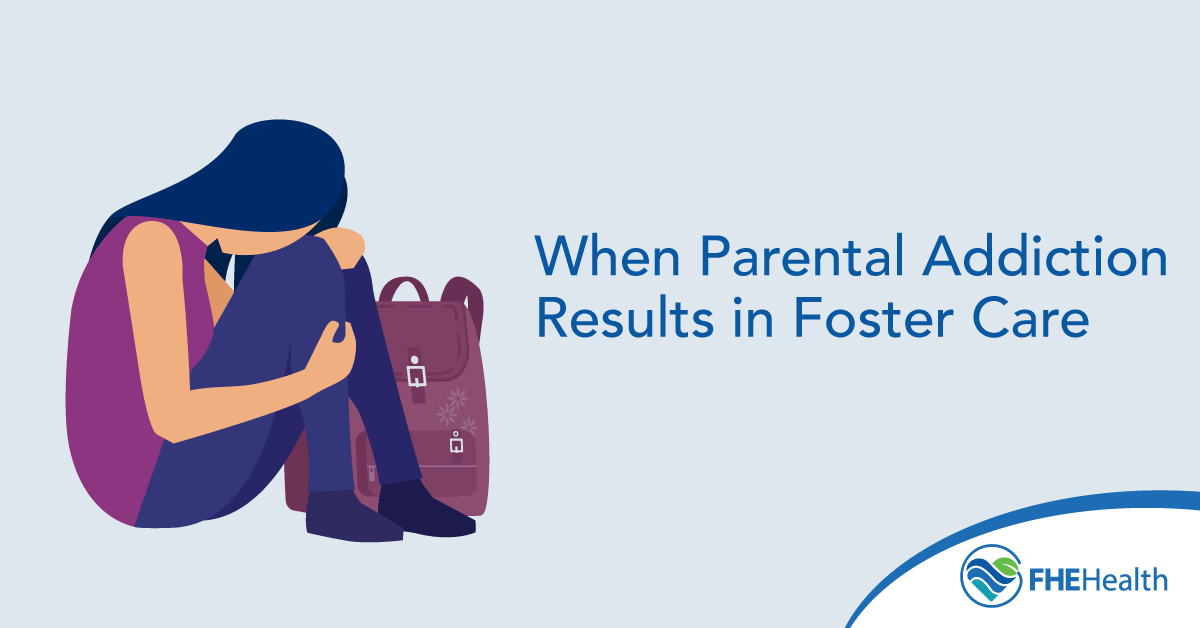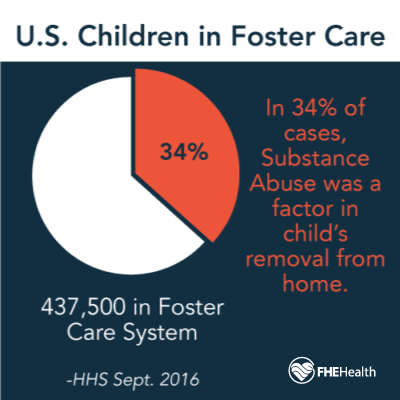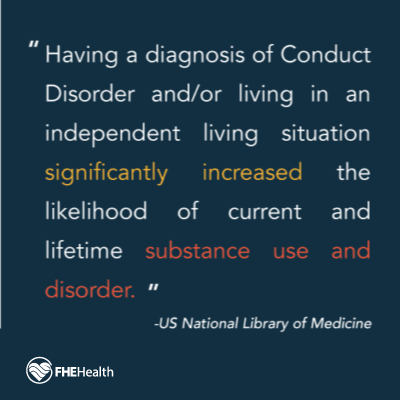
Drug addiction has plagued many lives in Florida and continues to do so on a day-to-day basis. Nationwide drug overdose rates continue to rise and too many lives are being lost to addiction. The impact of drug addiction not only causes destruction in the lives of those enduring its chaos but many other areas as well. Families and loved ones take the largest impact of it all, especially children. The fact that the grip of addiction can get in the way of raising and caring for children is hard to imagine, but for thousands of families around the country, this is true. Let’s take a look at the relationship between drug addiction and alcohol addiction and the foster care system.
What Is The Impact Of Parental Drug And Alcohol Abuse On Children?
 Regardless of the home, whether it be a traditional home or foster home, an addiction can affect parenting on both sides of the family. A child who goes through life with a parent who’s addicted to drugs or alcohol might grow up angry, resentful, or with a lack of respect to elders and authority figures. On the flip side of that, a substance use disorder may affect a parent’s ability to function effectively in a parental role. If an adult can’t effectively parent a child, that child misses out on many life lessons that people like you and I think of as second nature. An addiction can affect parenting in many ways. Some of those include:
Regardless of the home, whether it be a traditional home or foster home, an addiction can affect parenting on both sides of the family. A child who goes through life with a parent who’s addicted to drugs or alcohol might grow up angry, resentful, or with a lack of respect to elders and authority figures. On the flip side of that, a substance use disorder may affect a parent’s ability to function effectively in a parental role. If an adult can’t effectively parent a child, that child misses out on many life lessons that people like you and I think of as second nature. An addiction can affect parenting in many ways. Some of those include:
- Physical or mental impairments caused by alcohol or other drugs
- Reduced capacity to respond to a child’s cues and needs
- Difficulties regulating emotions and controlling anger and impulsiveness
- Disruptions in healthy parent-child attachment
- Spending limited funds on alcohol and drugs rather than food or other household needs
- Spending time seeking out, manufacturing, or using alcohol or other drugs
- Incarceration, which can result in inadequate or inappropriate supervision for children
- Estrangement from family and other social supports
This can lead to major problems in the home for both the child and the adult. It can have great implications outside the house too. Children that don’t have a reliable home life, tend to struggle outside the home as well. This can include lashing out, or even an inability to make friends or thrive in social settings.
Drug And Alcohol Addiction And Ability To Conduct Foster Care
As mentioned above, drug and alcohol dependence doesn’t just affect the well being of traditional raised children. It can also have an effect on the well being of foster children too. While this might not get as much traditional attention, it’s still incredibly important. A foster parent’s inability to successfully hold up to their end of the bargain and meet the state requirements of the foster care system can not only damage the child but the foster care system as a whole. If a child has to go back into the foster system due to a foster parent suffering from addiction issues, it can have major consequences. Not only will the foster care system now have to find a new home for that child, but it also delays finding new homes for others in the system. It can also be incredibly traumatic on the child to be put in a new home, only to have to be yanked out again. The foster care itself can face many issues as well. Some of those issues include:
- Insufficient service availability or scope of services to meet existing needs
- Inadequate funds for services and/or dependence on client insurance coverage
- Difficulties in engaging and retaining parents in addiction treatment
- Knowledge gaps among child welfare workers to meet the comprehensive needs of families with substance use issues
- Lack of coordination between the child welfare system and other services and systems, including hospitals that may screen for drug exposure, treatment agencies, mental health services, the criminal justice system, and family/dependency court
- Differences in perspectives and timeframes, reflecting different guiding policies, philosophies, and goals in child welfare and substance abuse treatment systems (for example, a focus on the safety and well- being of the child without sufficient focus on parents’ recovery)
Are Children In Foster Care More Likely To Have A Substance Use Disorder?
 Unfortunately, the answer to this is yes. Because of the nature of the foster care system, sometimes every child cannot be monitored at all times. This can allow children to be more likely to get into trouble. With so many children for in each foster home, they rarely get the one-on-one attention that they need to learn about drugs and alcohol and in turn must learn about these topics on their own.
Unfortunately, the answer to this is yes. Because of the nature of the foster care system, sometimes every child cannot be monitored at all times. This can allow children to be more likely to get into trouble. With so many children for in each foster home, they rarely get the one-on-one attention that they need to learn about drugs and alcohol and in turn must learn about these topics on their own.
In addition, foster care children have the tendency to lash out more. This can result in “getting in with the wrong crowd” and experimenting with drugs and alcohol. In fact, a study by the U.S. National Library Of Medicine found that “youth in certain living situations were more likely to be using illicit substances or meet criteria for SUD (substance use disorders), specifically, youth in independent living and congregate care settings. These findings are not surprising, as a youth in independent living settings would obviously have more freedom to participate in these activities and youth in congregate care settings are often placed there because of behavior issues and/or mental health problems – all risk factors for substance use and disorder.”
A Solution For the Relationship Between Drug Addiction and Foster Care Systems
Many people throughout the country are fighting against drug addiction and coming up with solutions aiming to lower the overdose-related death rates that come along with it. Unfortunately, though, not as many people are focusing on drug abuse prevention, especially in the foster care system. Those raising children in the foster care system often simply don’t have time, money, or ability to focus on each child and educate them on the dangers of drugs and alcohol. Similarly, these children are more likely to develop mental health disorders including depression, PTSD, and anxiety which are all triggers for substance abuse later in life. This is likely not a failing of foster parents, who are trying to do the best they can with a child who has had an unfortunate situation. The best solution to the foster care drug abuse problem would be to provide substance abuse treatment resources to those suffering from drug addiction and the necessary tools for education to strengthen prevention. Some of the things that the foster care homes can do include:
- Offer intervention assistance
- Require/recommend a specific drug rehab center
- Encourage multiple levels of care/therapy
- Resources for recovery communities
- Support groups for addiction
- Volunteer programs/employment programs
For those suffering from drug addiction there is a solution that can be provided through substance abuse treatment, which introduces a lifestyle of living free from substances and offer the chance to be a better parent, child, sibling, and more. With the proper drug addiction treatment a significant change is made along with the opportunity to prevent future damage and even the loss of life. While these issues can not be fixed overnight and can not be fixed by a few people, it is important for all of us to play any part we can in helping educate the youth on drug and alcohol addiction. It is especially important to help and educate our at-risk youth as they are the most likely to develop addiction problems later in life.
Florida Drug Addiction
If you or a loved one suffer from addiction reach out to us at FHE Health. Our treatment options will free you from your drug of choice and help you choose life again. We have everything you need to recover.






